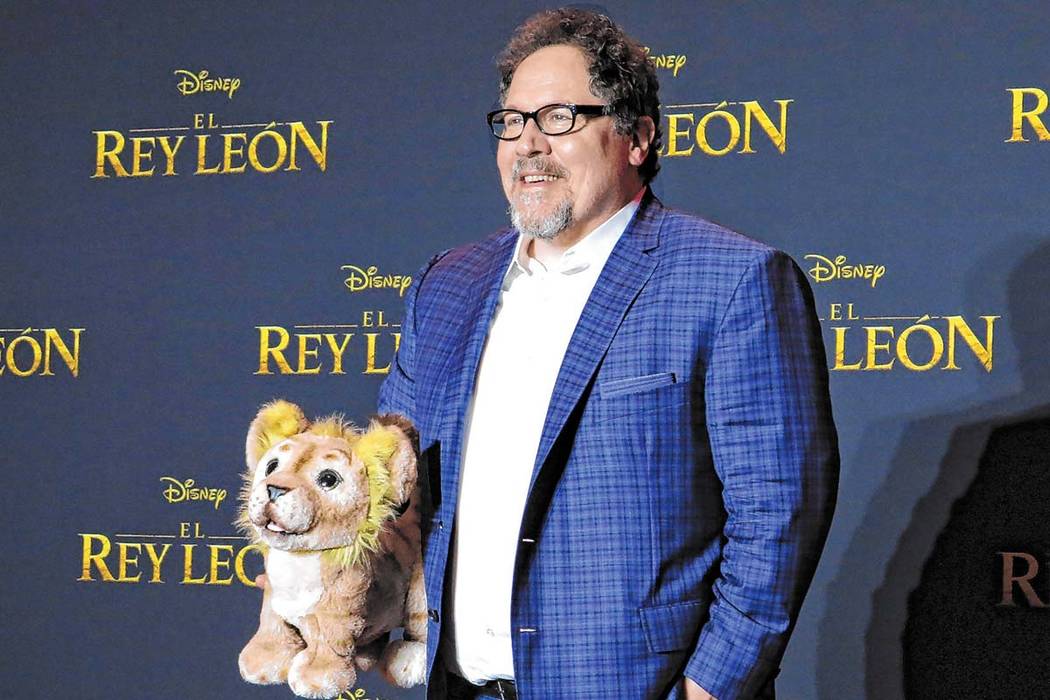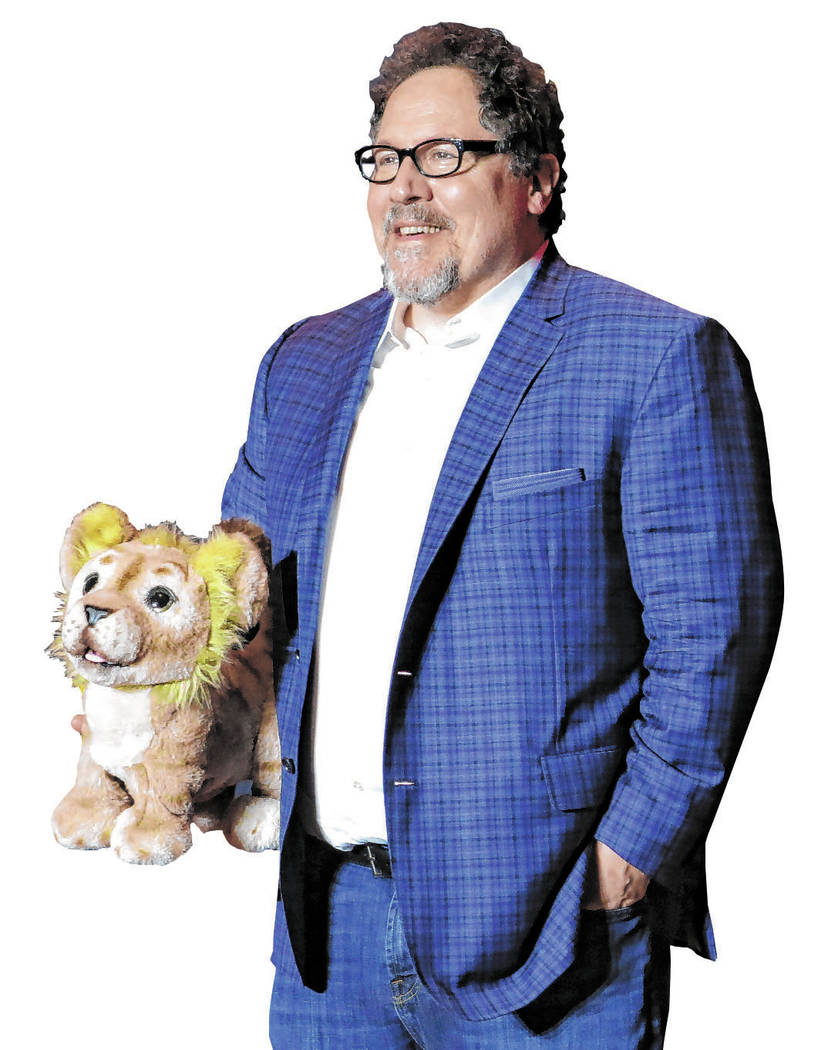Actor-director Jon Favreau on his roots, roles and ‘The Lion King’
Adapting a beloved classic with animals who aren’t really there but look so real that you want to reach out and pet them wasn’t exactly a hakuna matata (which means no worries) endeavor for director Jon Favreau.
“ ‘The Lion King’ is sacred ground. You don’t want to mess it up,” said the 52-year-old.
Turns out, he didn’t need to worry because Favreau felt the love at the world premiere, and his movie (opening July 19) is tracking to be one of the biggest box-office hits of the summer. It has it all, including Beyonce, James Earl Jones, Donald Glover and Seth Rogen doing the voices, an original song from Queen B, plus the cutest little cub this side of the savannah.
“You’re talking outstanding visuals, an amazing cast and that beautiful song catalog. I can’t wait for a whole new generation of fans to find ‘The Lion King,’ ” said Favreau, who also has a starring role as Happy Hogan in “Spider-Man: Far from Home.” He talked with the RJ during a solo interview and later at a group event for the film.
Review-Journal: What is your idea of a great Sunday?
Jon Favreau: I have this show called ‘The Chef Show’ on Netflix, where we go all over the world and celebrate different people and food. The truth is that’s my favorite Sunday. I’ll be with my family at home cooking something delicious for them. I find there’s nothing more relaxing than making food for people you love and just gathering around the table.
Are you a good chef after starring in the film, “Chef?”
I try to be a good chef. Trying is key.
How much pressure was on you to remake this classic?
There was pressure, but you had to break it down to the story — and just tell a great story. At the heart, “The Lion King” is a story about a son named Simba trying to live up to this legacy left by his late father King Mufasa. It’s a hero’s journey about growing up.
Can you talk a bit about how you used pioneering photo-real animation technology to create this world.
It’s a virtual reality technology that allows filmmakers to create locations, build worlds and even adjust the lighting on a blade of grass, plus you can adjust the emotions of each character. There were no animals used on this virtual production. The goal is to create a live-action feeling. These are handmade films. There are animators working on every shot. Every environment is built from scratch by artists.
You learned about this world when you directed “Jungle Book.” How daunting is it to make a movie this way?
Of course, it’s daunting. I’ve been working on both “Lion King” and “Jungle Book” back to back for six years now. With “Lion King,” every single piece of fur, every single eye, every single plant had to be created and fit together to look realistic. You needed to feel the drops from the waterfall. You had to look into Simba’s eyes and feel him looking back at you.
The voice talent in “Lion King” is out of this world.
This is an amazing cast and also some down-to-earth people. They loved this material as kids or wanted to do it for their kids. I was just surrounded by amazing talent.
Do you like switching gears between directing and acting?
Best of both worlds. For me, it’s also really fun to put the actor’s hat back on. I started out as an actor and I still love doing it.
How did you wander into show biz?
I grew up in front of my grandmother’s TV (in Queens) watching “Jason and the Argonauts.” My family also loved movies. I’ll never forget my dad taking me to see the reissues of the old stop-motion “King Kong” films. I was hooked. I guess my Dad was my first producer because he gave me a camera and he was also my visual-effects supervisor. When I was 9, I said, “I want to make a Super 8 in black and white, so we found that kind of film. It wasn’t easy, but it was worth it. I was a geek. But it worked out. They like geeks in Hollywood. We tend to have good imaginations.
You started out doing improv.
After college, I moved to Chicago to work with improv theater groups. I cut my teeth on stage where you can die a thousand deaths or have the best night of your entire life. What I learned during that time was to edit myself and put on a show. Sometimes, it wasn’t a great show, but you could learn from your failures, go back on stage and try again.
There’s a story that you wrote “Swingers” because someone bought you computer software.
I wrote it part out of curiosity. I had just received a piece of screenwriting software from my dad. I didn’t know it would result in a movie, but it did.
What’s the joy of directing a film?
All of the decisions fall on you. It’s a tremendous responsibility. You’re the guy where the buck stops. But if you do it right it’s like “Elf.” It’s on TV year after year … and that feels great.”























